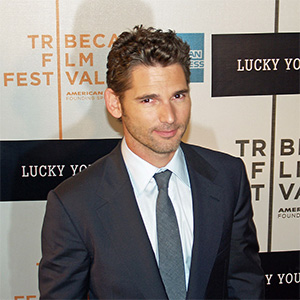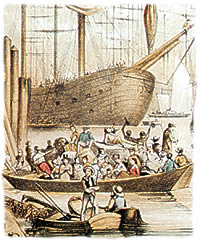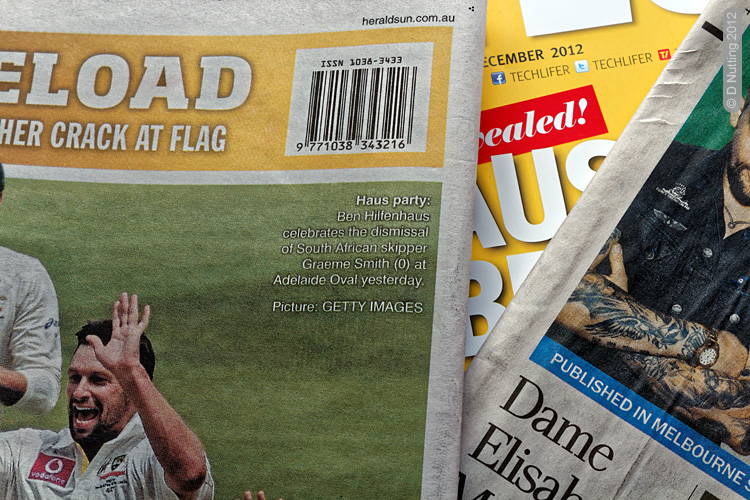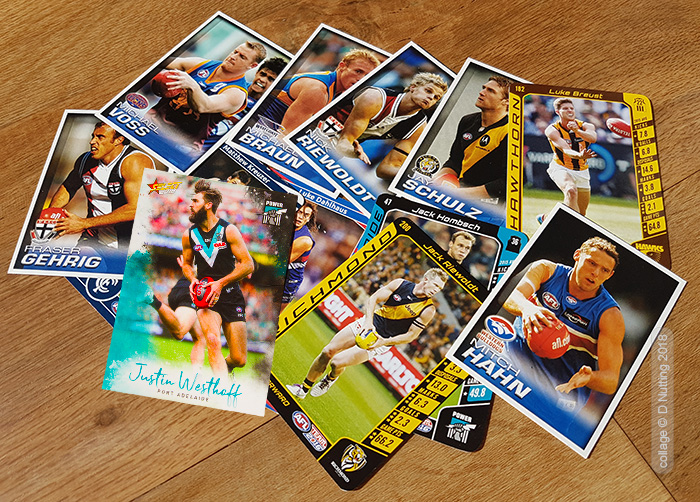![]()
Introduction
The historian Charles Meyer wrote:
"We know that Germans were with the First Fleet, opened the earliest hotels, financed the first businesses, gained some of the earliest land grants, were among the first to explore the unknown areas, and occupied high positions in law, culture and science."- Meyer, Charles (1982) 'The Germans in Victoria (1849-1900)'. In: Journal of the Royal Australian Historical Society, Vol.68, June 1982, pp.18-36, Sydney.

Eric Bana - at the premiere of the film Lucky You in May 2007 in New York City.
Wikimedia Commons / David Shankbone.
A significant presence
German-speakers have played a role in significant developments in Australia, including:
Descendants of German-speaking immigrants have been prominent in many social, economic and cultural areas of Australian life, ranging from entertainment to politics to science to sport, for example:
politicians include the former Deputy Prime Minister Tim Fischer, former cabinet minister Eric Abetz, former President of the Australian Senate Condor Laucke, Greens politician Adam Bandt, the longest-serving Premier of Victoria (17 years) Henry Bolte, former Chief Opposition Whip in the House of Representatives Warren Entsch;
cricketers Carl Rackemann, Darren Lehmann, Ben Hilfenhaus, Shane Warne (German mother) and Megan Schutt;
footballers Mark Schwarzer and Robbie Kruse;
rugby players Andrew Ettingshausen, Brad Fittler and Anthony Seibold;
AFL-footballers Luke Breust (a goal-kicking record-holder), John Schulz (1960 Brownlow medallist) and Nick Riewoldt;
swimmers Emily Seebohm and Jon Sieben;
scientists Ernst Johannes Hartung, Basil Hetzel, Bernard Katz and Gustav Nossal;
entertainers Geoffrey Rush (mother of German descent), Eric Bana (German mother), Ben Mendelsohn, Isabel Lucas, Ed Kuepper (of the bands The Saints and The Laughing Clowns), Olivia Newton-John (German mother - her father was a professor of German), Baz Luhrmann, David Koch (television presenter).
Main phases of immigration
There have been five main phases of German-speaking immigration in Australia:
| Settlement by groups (especially in the colony
of South Australia) in the early-mid 19th century (See a photo of a passenger ticket for a passage to Port Adelaide from 1846.) |
|
 |
The Gold Rush era in the mid-19th century |
| The arrival of large numbers of settlers in the colony of Queensland from the 1860s up to 1914 | |
| The arrival of refugees (including German and Austrian Jews fleeing Nazi persecution) in the late 1930s and the 1940s | |
| The planned migration (promoted by the Australian government) of the 1950s and 1960s |
(Based on: Germans in South Australia. A Migration Museum Education Program for Students in Years 8-12. Migration Museum Adelaide 1994)
 Emigrants embarking in Hamburg, circa 1850. (Museum für Hamburgische Geschichte) |
Population: In 1861 (the first year in which the census recorded nationality) the colonies NSW, Victoria, Queensland and S.A. had 26,872 people who were born in Germany. In 1891 there were 45,000 German-born people in Australia. The two World Wars had a big effect on German immigration. In 1947 there were 14,567 German-born people in Australia. Then masses of Germans were part of the Australian Government's big immigration program in the 1950s and 1960s. In 1961 Australia had 109,315 German-born people. In 1981 there were 110,758 people in Australia born in Germany. |
|
Distribution:
In reference to the Australian Census statistics of 1921, Professor Augustin Lodewyckx (University of Melbourne) wrote in 1932: that the figures allowed the conclusion that about 80% of the Germans in Australia were farmers and property owners or at least associated with farming. He found this interesting considering that at least about half of Australia's population was living in the six capital cities of the six states.
The academic Jürgen Tampke concluded in 2006 that about 75% of the Germans who arrived in Australia in the second half of the 20th century settled in the capital cities of the various states.
Although the early German settlers were found in all parts of Australian society, some settlements (especially in S.A. and Queensland) developed in which German customs and traditions were very strong in the community. In these settlements the Germans' membership of the Lutheran Church strengthened their community spirit.
German immigrants have made a large contribution to Australia's economic and cultural life.
Australians of German descent: sport
In all walks of life you can find high-profile Australians with German surnames. Aussies love sport, and German surnames are there too, e.g.:
Athletics:
Vanessa Low, a German-Australian Paralympian, lost both legs in a railway accident at the age of 15 in Germany. She represented Germany in the 2016 Rio de Janeiro Paralympic Games and won gold in the T42 long jump and silver in the T42 100m sprint. She married Australian Paralympic gold medallist Scott Reardon and after gaining Australian citizenship she won gold in the T63 long jump at the Paralympics in 2020 in Tokyo and again in 2024 in Paris, setting world records several times and inspiring others through her resilience and sporting excellence. In 2022 she was awarded the Medal of the Order of Australia (OAM) for service to sport.

This poster at a railway station in Victoria promotes a safety message about railway platforms and references Vanessa Low.
Basketball:
Rachel Sporn
Cricket:
Jason Arnberger, Michael Klinger, Shane Warne [German mother] (Victoria), Andy Bichel, Carl Rackemann, Scott Muller, Ashley Noffke, Matthew Kuhnemann [nine Test wickets] (Queensland), Darren Lehmann (South Australia), Ben Hilfenhaus ["Bradman Young Cricketer of the Year" Award, 2007] (Tasmania), Shelley Nitschke [six Tests and 80 ODI matches for Australia; appointed Australia's women's cricket team head coach in 2022], Megan Schutt [fast-medium bowler for the national team; in 2019 she became the first woman to take two hat-tricks in international cricket]

Australia's national cricket team celebrates a great achievement by the Tasmanian Ben Hilfenhaus in a Test match against South Africa, and a newspaper makes a word pun with his German name in the caption.
AFL football:
Australian football commentators have even noticed the number of German-descended players in the Australian Football League (AFL). On 18th May 2014 during the second quarter of the game between St Kilda FC and the Gold Coast Suns FC, ABC Radio sports broadcaster Adam White commented that if Adam Schneider of St Kilda FC had not marked the ball, then his teammate Nick Riewoldt had been well-placed to mark the ball instead. Adam White’s co-commentator then said: “It’s like a German front-line: Riewoldt, Schneider!!”

Football cards from the Australian Football League (AFL). They show some of the AFL players whose family names bear witness to their German-language family background/descent: Fraser Gehrig, Michael Voss, Michael Braun, Nick Riewoldt, Jay Schulz, Luke Breust, Mitch Hahn, Jack Riewoldt (cousin of Nick), Jack Hombsch, Justin Westhoff, Luke Dahlhaus and Matthew Kreuzer.
Soccer:
Mark Schwarzer (Socceroos)
Road bicycle racing:
Rowing:
At the Paris 2024 Paralympic Games Jed Altschwager (together with Nikki Ayers) won Australia's first-ever gold medal in Paralympic rowing, in the PR3 mixed double sculls.
Track cycling:
Matthew Glaetzer - UCI Track Cycling World Championships: 2012 Gold Medal in the team sprint; 2018 Gold Medal in the sprint; 2016 Silver Medal in the sprint; 2018 Silver Medal in the 1-km time trial; 2022 World Champion in the team sprint; at the 2024 Olympic Games in Paris he won the bronze medal in the team sprint (with Leigh Hoffman), and a bronze in the keirin race.
Leigh Hoffman - 2022 World Champion in the team sprint; at the 2024 Olympic Games in Paris he won the bronze medal in the team sprint (with Matthew Glaetzer).
Motorbike racing:
Jamie Stauffer (Australian Superbike Series champion, 2006 and 2007)
Netball:
Yachting:
Sydney Fischer - "Sydney (Syd) Fischer is arguably Australia's most successful offshore sailor." He won "two of the world’s major ocean racing events - the Sydney to Hobart and the Fastnet race." (Source: Australian Sailing Hall of Fame)
Swimming:
Maybe you can think of other sportsmen and sportswomen...
| Top | Back
| Chronology | Issues
| Students | Site Map |
auf Deutsch |
| Primary Sources (in German) | Bibliography
| Search |
German Australia © D. Nutting 2001